On the night of Saturday 31st January 1953 severe winds and a high tide resulted in a storm surge and catastrophic flooding along the North Sea in the Netherlands, Belgium and Britain. 41 people died at Felixstowe in Suffolk and 37 in Jaywick further down the coast in Essex. In Aldeburgh, despite the concrete and steel sea wall defences built in 1949, many people were forced from their homes and properties badly damaged. The sea threw large amounts of shingle onto Crag Path, door and windows were broken by the force of the water, half of Aldeburgh was inundated, and some 300 houses flooded. Britten and Pears were both away that night as their home, Crag House situated on Crag Path on the sea-front, was battered and severely flooded.
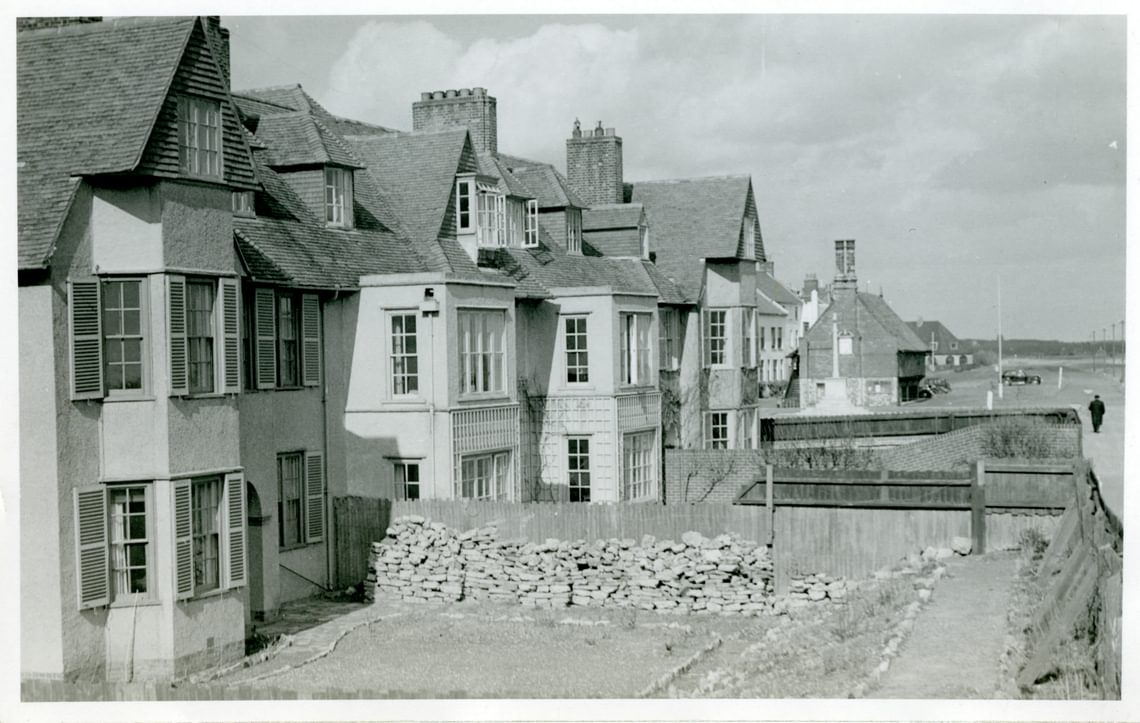
Britten's house and those of his neighbours on Crag Path, Aldeburgh
That month Britten had been working on the last act of his opera Gloriana to be premiered on 8th June at London’s Royal Opera House - a Gala performance to celebrate Queen Elizabeth II’s coronation. On the night of the storm, he was staying at John and Myfanwy Piper’s house at Fawley Bottom, near Henley, meeting up with friends to work on the opera - librettist William Plomer, producer Basil Coleman as well as John as designer. Pears was on a recital tour in the West Country with pianist Noel Mewton-Wood - as Britten was tied up with his opera - performing in Bideford, Devon on the 1st February.
Thankfully, Imogen Holst, Britten’s new music assistant was on hand. This was Holst’s first winter in Aldeburgh having moved to the town the previous Autumn. She had proved her worth at the 1952 Aldeburgh Festival, willing to roll up her sleeves and get on with the hard work in her typical organised, efficient and practical way. Holst had kept a daily diary since her arrival in Aldeburgh, writing in vivid and colourful detail about her work, conversations and feelings. She described the day after the storm when she took charge at Crag House, rescuing Britten’s music manuscripts;
‘On Sunday, Feb 1st, I went down the hill at midday & there was a raging river down Crabbe St. I asked a young man called Keith to carry me across as he’d got fisherman’s waders on, & I found Miss Hudson [the housekeeper] had had an awful night. I moved all the music from the lower shelves onto the first floor, stripped Ben’s writing desk & collected all his manuscripts I could find & put them in the attic, between rooms in a passage without glass, & buried them in pillows.’
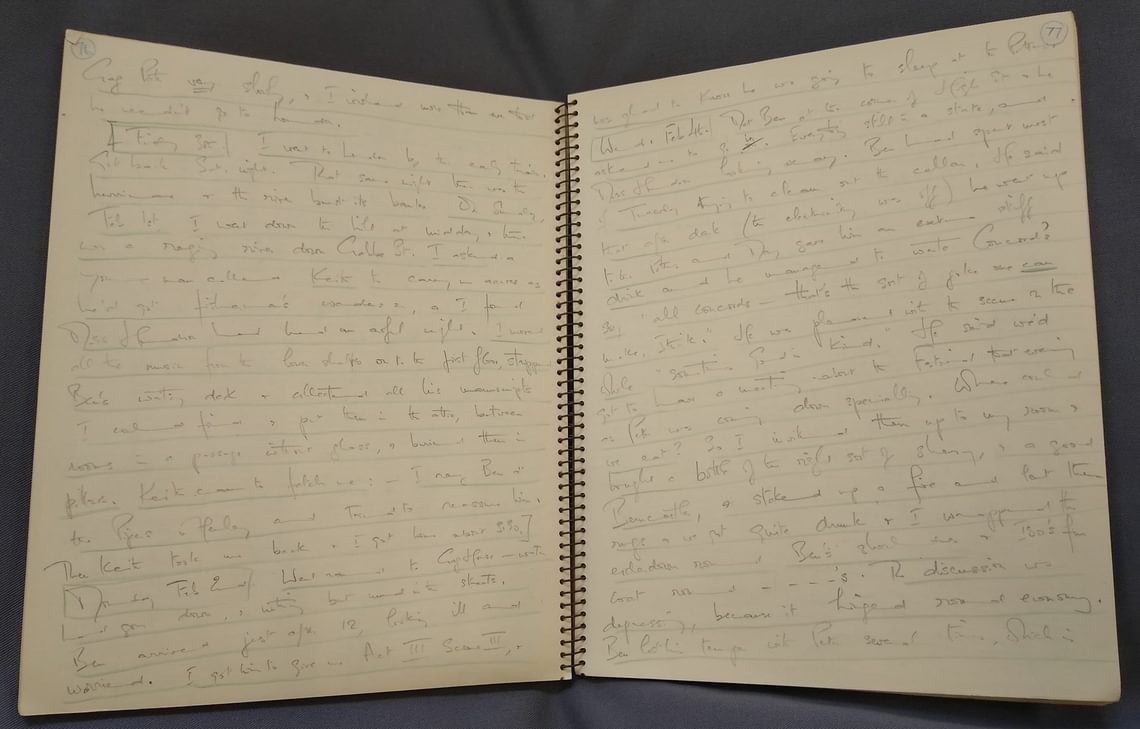
Imogen Holst’s Aldeburgh Diary
Britten hurried back to Aldeburgh the next day finding that the flood waters had receded leaving mud and slime in his drawing room and cellar. He bought denim overalls and boots from Butcher’s clothing shop on the High Street and started clearing up.

Britten’s receipt for purchasing overalls and boots
Holst recorded in her diary; ‘Monday Feb 2nd. Went round to Crag House – water has gone down, & nothing but mud in the streets. Ben arrived just after 12, looking ill and worried. I got him to give me Act III Scene III, & was glad to know that he was going to sleep at the Potters’
His friends, artist Mary Potter, and her husband Stephen lived at the Red House, so Britten got to sleep in his future home - he already knew their garden from games of tennis on their lawn court.
Holst continued in her diary; ‘Wed. Feb 4th. Met Ben at the corner of High St & he asked me to go in. Everything still in a state, and Miss Hudson looking weary. Ben had spent most of Tuesday trying to clean out the cellar. He said that after dark (the electricity was off) he went up to the Potters and Mary gave him an extra stiff drink and he managed to write Concord’s song’
Britten was finding it difficult to find time and energy to work on Gloriana and the pressure was making him ill. He wrote to his sister Barabra ‘I’m better & working abit – but last week was hell, what with sea and flooding … not being able to work & yet feeling guilty – with the result that I had all the stomach thing again – purely psychological – I know – I know. But it’s OK now’
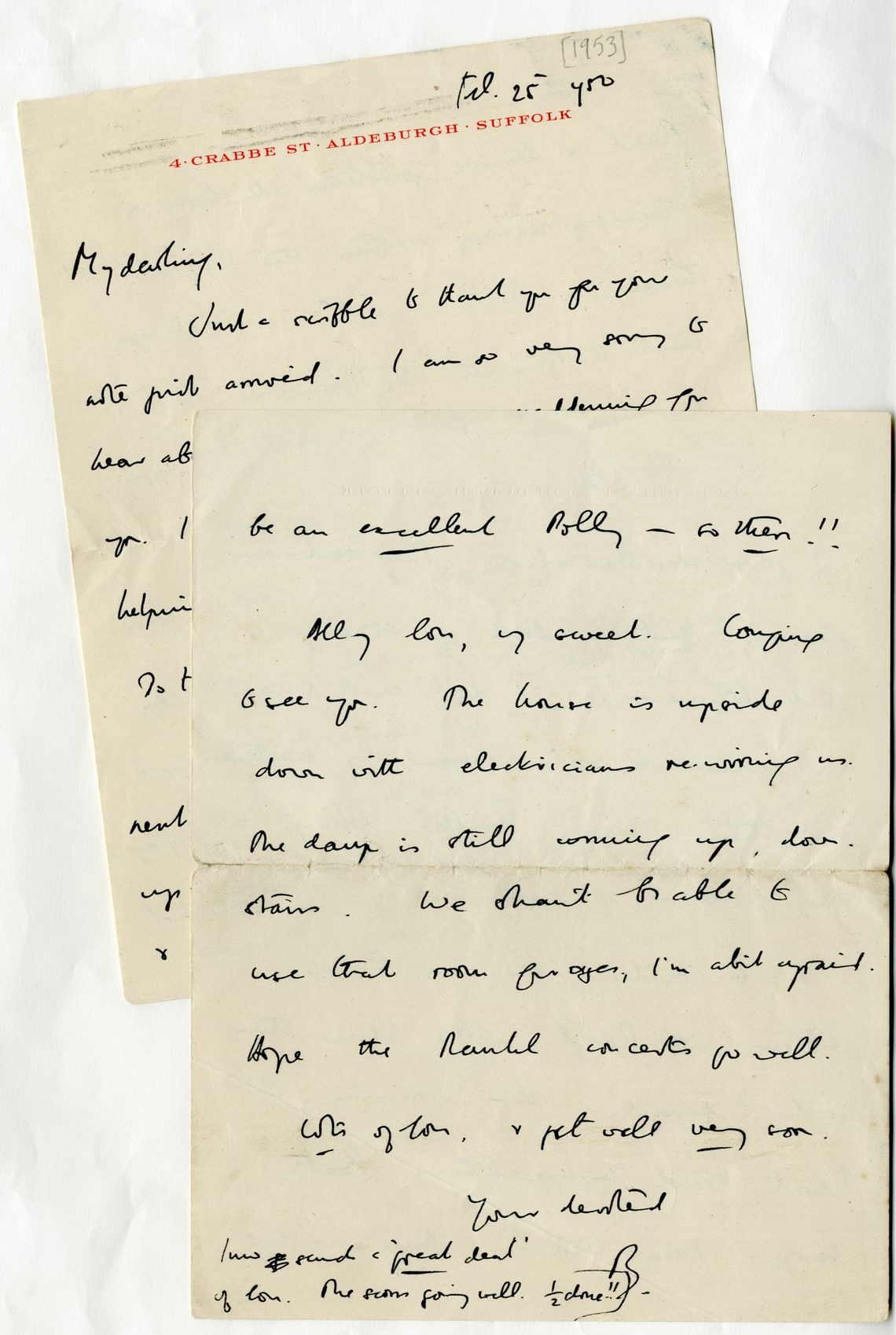
Letter from Britten to Pears, 25 Feb 1953
Clear up and repair work at Crag House took several weeks with Britten writing on 25th February to Pears who was away on recital tour with Mewton-Wood again, this time in Scotland; ‘The house is upside-down with electricians re-wiring us. The damp is coming up downstairs. We shan’t be able to use that room for ages, I’m a bit afraid’.
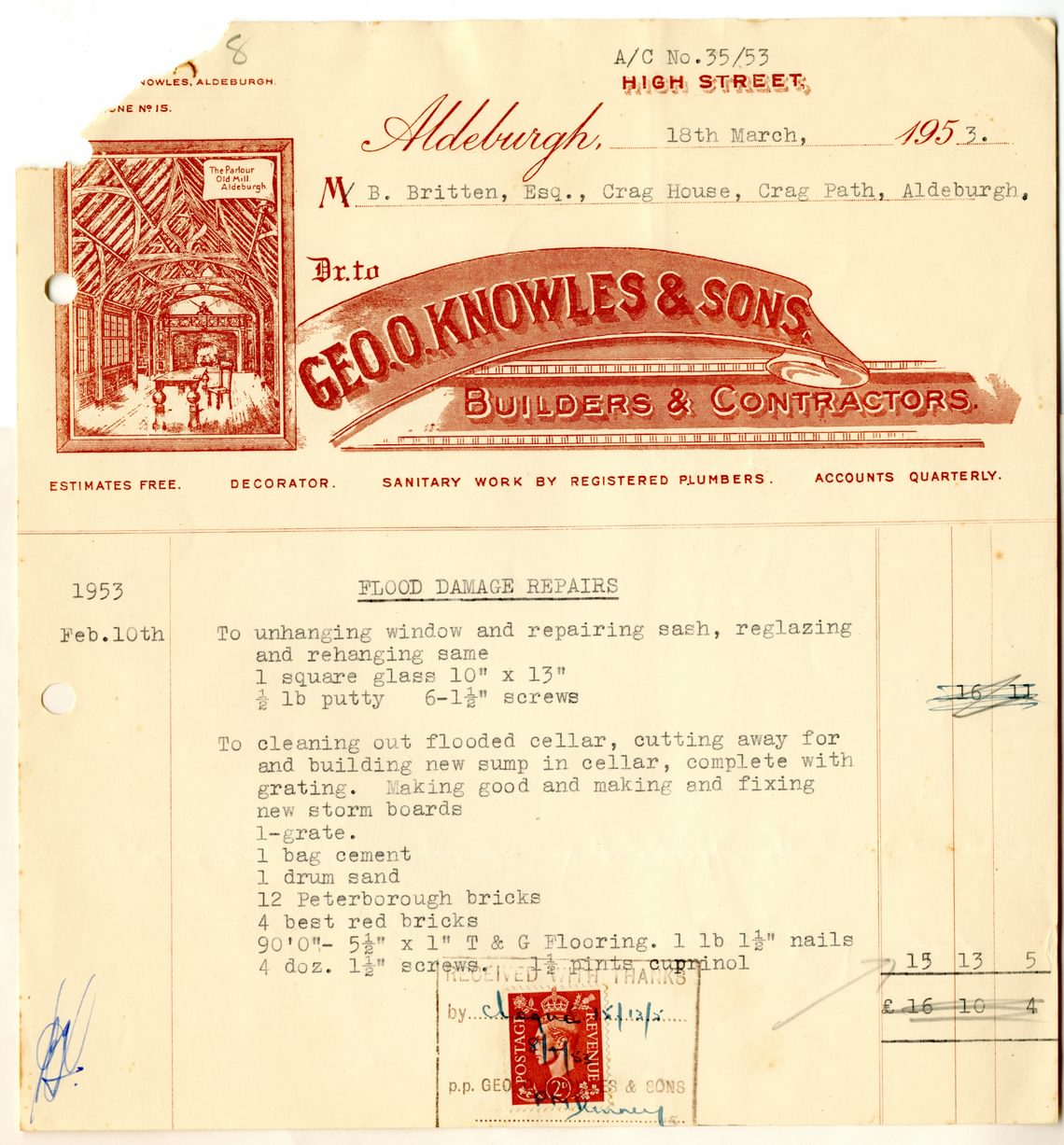
Invoice for flood damage repairs at Crag House
The store of Aldeburgh Festival chairs and screens and the Festival Office on the High Street had also been badly flooded. Plans for that year’s Festival were affected and on 14th March Britten wrote to musician and writer Henry Boys with the bad news that ‘Owing to the flood and consequent drastic economy we have had to postpone indefinitely The Soldier’s Tale’. However, he also had good news concerning his opera; ‘I’m just about to go away for a well earned holiday having quarter of an hour ago written the last notes of Gloriana.’
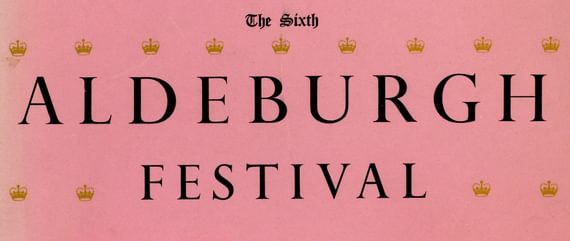
1953 Aldeburgh Festival programme book
Although this was a difficult time for Aldeburgh the 1953 Festival went ahead. In his Foreword to the Festival programme book The Earl of Harewood recognised that ‘not a single person who lives or works on the sea front or in the High Street is yet in every way back to normal’ however ‘The example of the last war … must have convinced almost everyone of the extraordinary consolatory power of music and the arts generally in times of stress and difficulty’. This is a statement we can equally appreciate today during the Covid pandemic although of course the Aldeburgh Festival had to go a different way and, unable to gather together, we gained our ‘consolatory power’ remotely though technology not dreamt of in 1953.
In January 1953 Britten’s collection of gramophone records, stored in the cellar, was damaged by the flood waters. Librettist of The Rape of Lucretia, Ronald Duncan, remembered that ‘As a result of the flood most of the labels floated off the discs. He dried them out. But complained that later when he put a record of Bartók on his hi-fi, it turned out to be a piece by Bach or Beethoven’. Later Britten only stored belongings of less value in the cellar below the flood line. Flooding in Aldeburgh from the sea or the River Alde remains a threat and we periodically receive flood warnings from the Environment Agency. In our new purpose-built Archive, we have raised our strong rooms to store the archives of great value above flood risk level but have also taken the extra precaution of using extra sticky labels on our archive boxes!
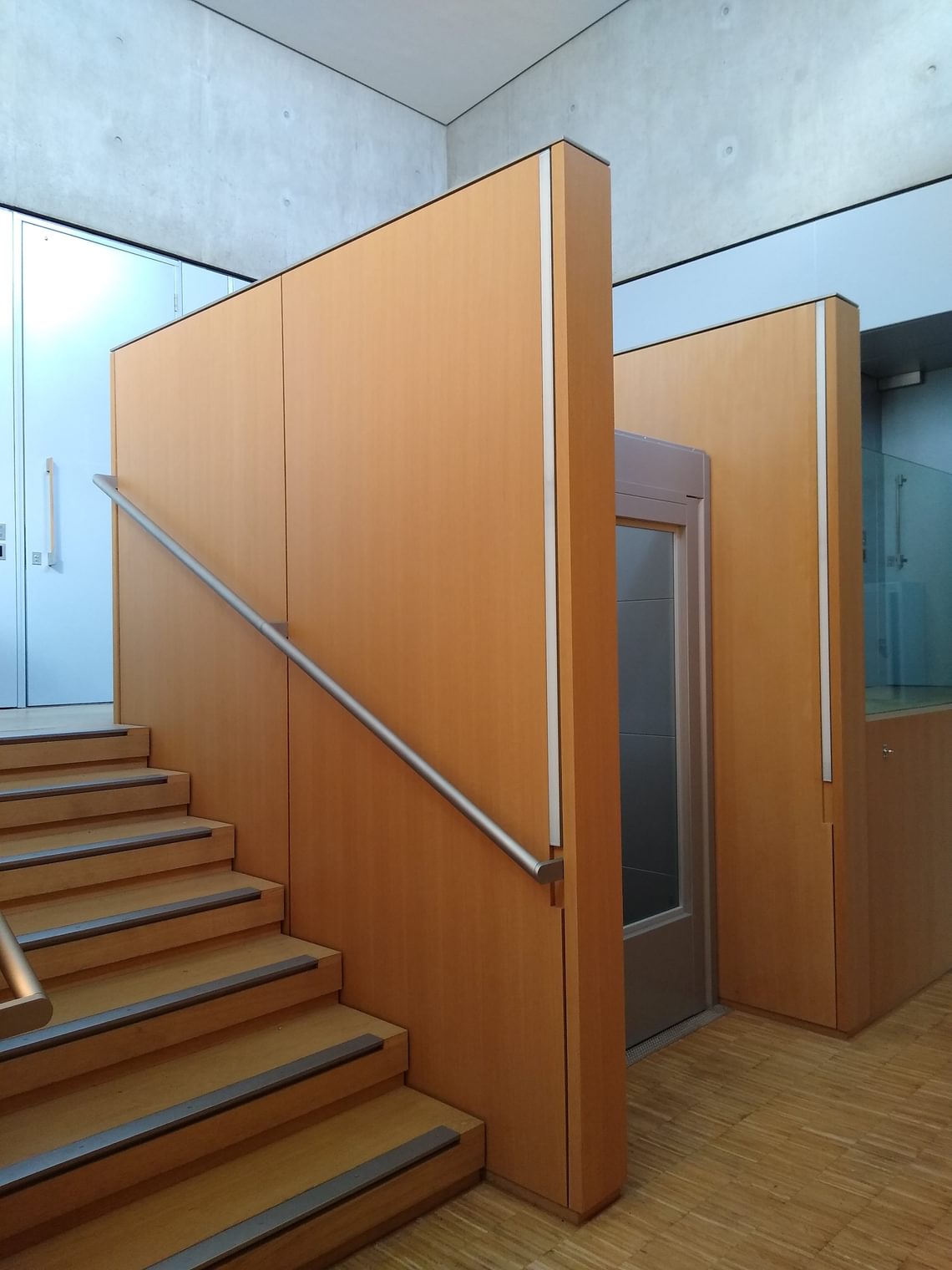
The foyer of the Britten Pears Archive with raised strong rooms
- Judith Ratcliffe, Archivist
You might also be interested in...
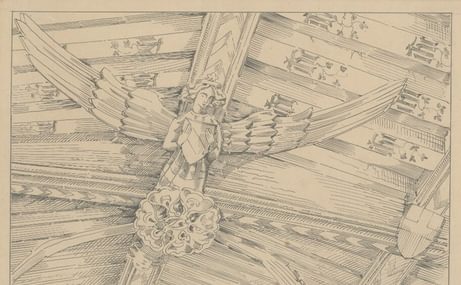
Archive Treasures: An Angel in Blythburgh Church
Festival Walks are still a fixture of today’s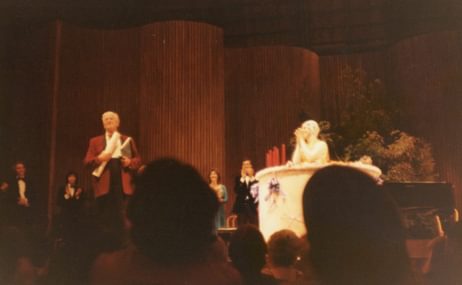
Archive Treasures: 70th birthday presents by Hockney and Holst
The 33rd Aldeburgh Festival in 1980 marked the 70th birthday of Peter Pears. His birthday fell on the last day of the festival and a whole day of…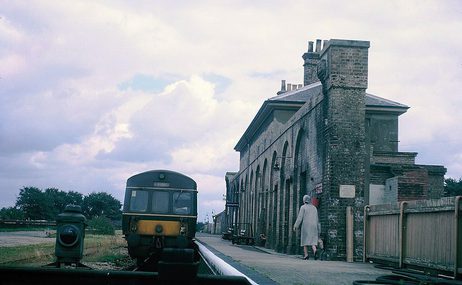
Archive Treasures: Slow train to Aldeburgh – Britten and Dr Beeching
James Callaghan, Roy Jenkins, Barbara Castle: the list of Ministers in Harold Wilson’s 1964-1970 Labour government in the UK includes many political…
